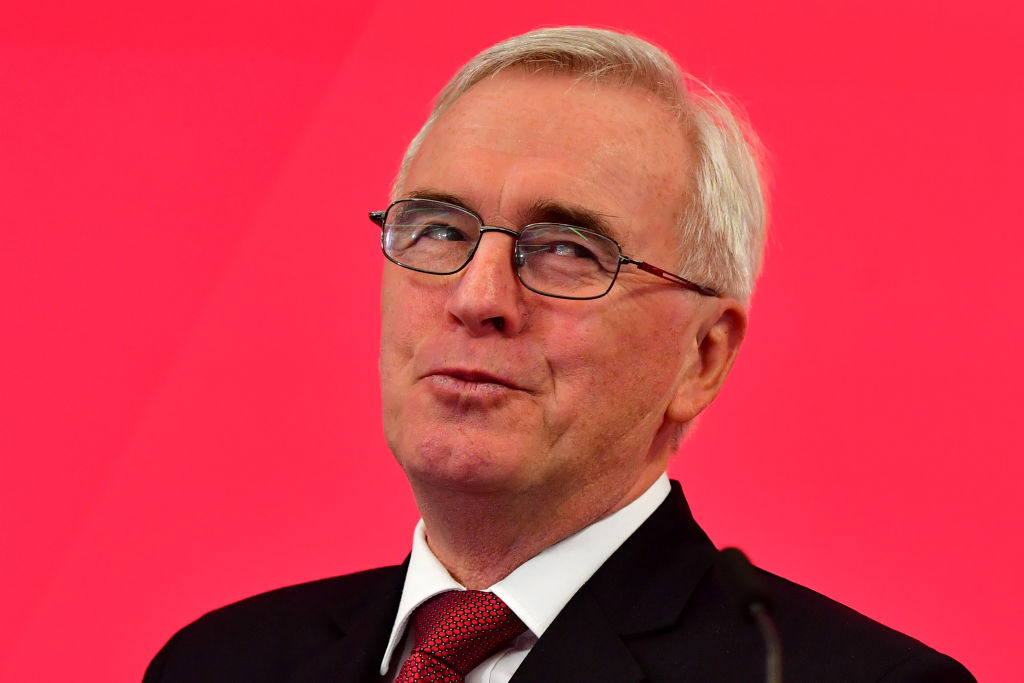John McDonnell this morning invited Phones4U entrepreneur John Caudwell around for a cup of tea. If I were Caudwell I would treat it a bit like an invitation to afternoon tea in Miss Marple’s village – and keep a keen nose out for the smell of bitter almonds. No good will come of the invitation, that is for sure.
Day by day, it is becoming clear McDonnell really is engaged in what he has described in his Who’s Who entry as ‘fermenting the overthrow of capitalism’. Today’s offering is to impose a maximum 20:1 ratio of the highest-earning employee to the lowest-earning in any company which bids for government contracts – and to threaten to delist any company which fails to reach decarbonisation targets.
It is not hard to work out what would happen as a result of these two measures. A multinational corporation is not going to slash its chief executive’s pay just so that it can bid, say, to install a new IT system at the Department for Work and Pensions. It just won’t bid – with the result that the UK government will find itself struggling to place contracts at all. Perhaps that is what McDonnell wants, so that he can use it as an excuse to nationalise yet more of the means of production.
As for threatening to delist companies which fail to reach decarbonisation targets, he shouldn’t worry – they will delist themselves from London, and list instead in New York, Amsterdam or Tokyo. They are not going to hang around in the hope that new technology will emerge quickly enough to help them decarbonise their operations to hit the kinds of targets that Labour looks like setting. It simply is not going to be possible for some industrial sectors to cut greenhouse emissions even nearly quickly enough for Britain to reach net zero carbon emissions by 2030 or soon after (Labour has gone back on the 2030 target).
It wouldn’t just be oil and gas companies which would leave Britain. We have, as yet, no commercially-developed technology to decarbonise steel production or cement-making. We will have difficulties mining or manufacturing anything on a large scale. All these industries would simply leave Britain, and leave us with an economy entirely made up of organic carrot soup-manufacturers and the like.
Labour already seems to be taking its environment policy by dictation from Extinction Rebellion. It is taking its cue from the activists who have been bullying universities, public pension funds and the like to divest from fossil fuel companies and any others to which they take a dislike.
But of course, fossil fuel companies are also big investors in renewable energy. Under McDonnell, all that investment will be pushed abroad, leaving Britain as even more of an importer of green energy than we are already. Or at least a potential importer – how we would succeed in paying for it, when we have deconstructed virtually our entire industrial sector, is another matter.







Comments